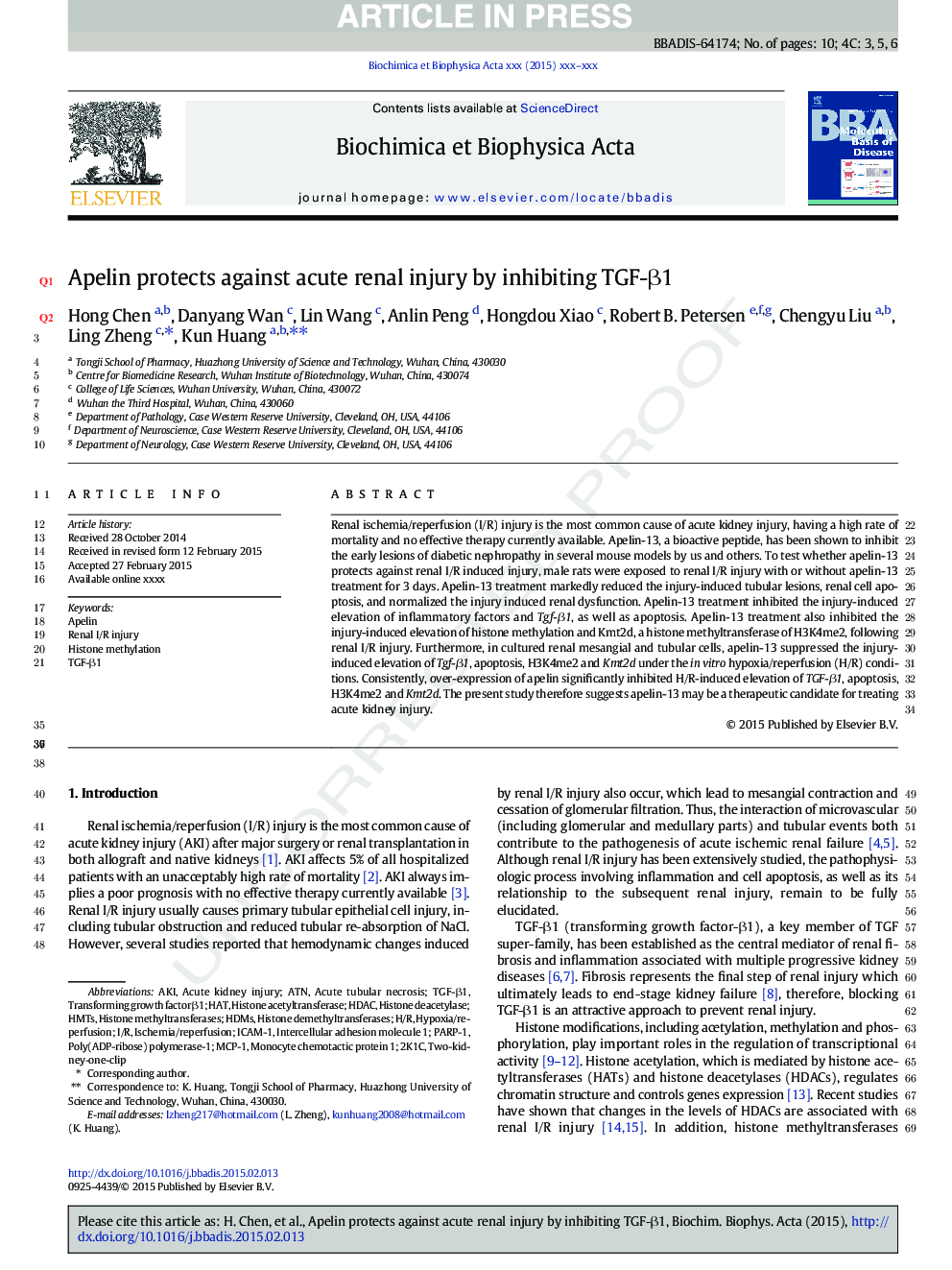| Article ID | Journal | Published Year | Pages | File Type |
|---|---|---|---|---|
| 8259785 | Biochimica et Biophysica Acta (BBA) - Molecular Basis of Disease | 2015 | 10 Pages |
Abstract
Renal ischemia/reperfusion (I/R) injury is the most common cause of acute kidney injury, having a high rate of mortality and no effective therapy currently available. Apelin-13, a bioactive peptide, has been shown to inhibit the early lesions of diabetic nephropathy in several mouse models by us and others. To test whether apelin-13 protects against renal I/R induced injury, male rats were exposed to renal I/R injury with or without apelin-13 treatment for 3 days. Apelin-13 treatment markedly reduced the injury-induced tubular lesions, renal cell apoptosis, and normalized the injury induced renal dysfunction. Apelin-13 treatment inhibited the injury-induced elevation of inflammatory factors and Tgf-β1, as well as apoptosis. Apelin-13 treatment also inhibited the injury-induced elevation of histone methylation and Kmt2d, a histone methyltransferase of H3K4me2, following renal I/R injury. Furthermore, in cultured renal mesangial and tubular cells, apelin-13 suppressed the injury-induced elevation of Tgf-β1, apoptosis, H3K4me2 and Kmt2d under the in vitro hypoxia/reperfusion (H/R) conditions. Consistently, over-expression of apelin significantly inhibited H/R-induced elevation of TGF-β1, apoptosis, H3K4me2 and Kmt2d. The present study therefore suggests apelin-13 may be a therapeutic candidate for treating acute kidney injury.
Keywords
Related Topics
Life Sciences
Biochemistry, Genetics and Molecular Biology
Ageing
Authors
Hong Chen, Danyang Wan, Lin Wang, Anlin Peng, Hongdou Xiao, Robert B. Petersen, Chengyu Liu, Ling Zheng, Kun Huang,
